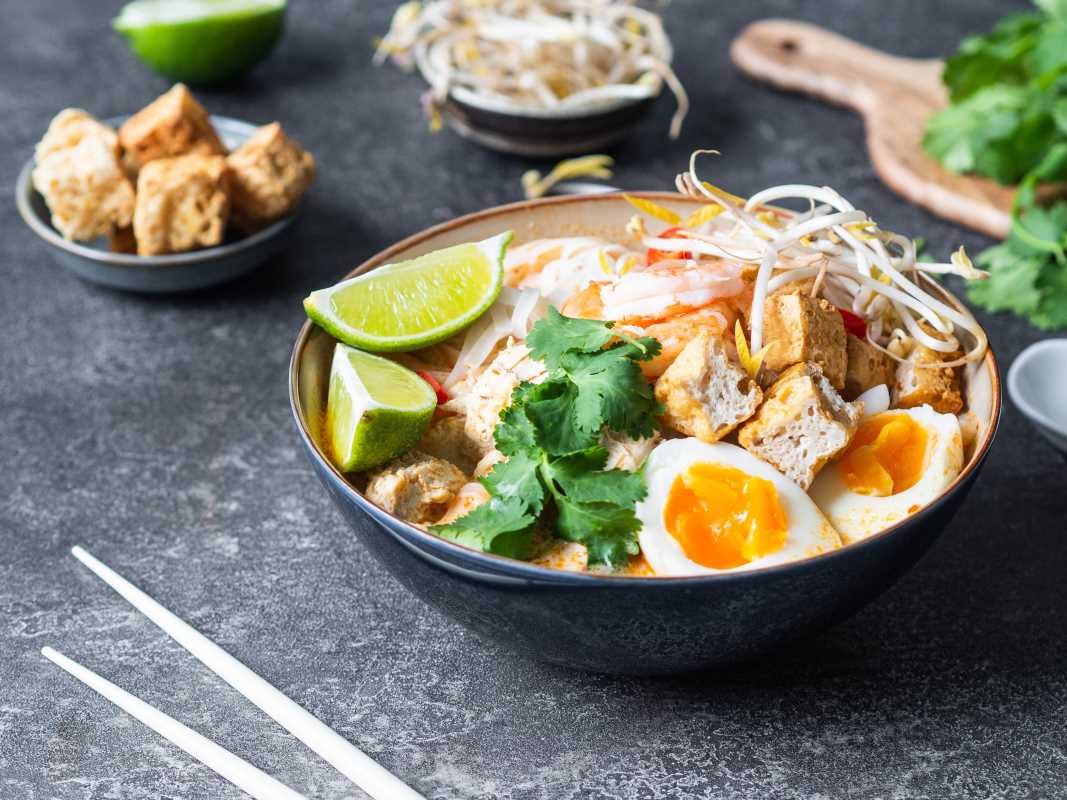Many people reach for another cup of coffee when the afternoon slump hits, only to ride a wave of jitters and an eventual crash. This constant search for sustainable energy has led many to explore adaptogens—a unique class of herbs that may help the body manage stress and find balance. When brewed into teas, these botanicals offer a gentler way to support daily energy levels without the jarring side effects of high-stimulant drinks. Understanding the science behind adaptogenic teas can help you move from simply curious to an informed consumer.
What Are Adaptogens and How Do They Work?
Adaptogens are herbs and mushrooms that help the body adapt to physical, chemical, and biological stressors. Instead of providing a jolt of artificial energy, they are thought to work by modulating your body’s stress response system, primarily the hypothalamic-pituitary-adrenal (HPA) axis.
The HPA Axis and Cortisol
When you encounter a stressor, your HPA axis kicks into gear, culminating in the release of cortisol. In short bursts, cortisol is helpful—it provides quick energy and heightened focus. However, chronic stress keeps cortisol levels elevated, leading to fatigue, burnout, and adrenal dysregulation.
Adaptogens appear to help normalize cortisol rhythms. They may lower excessive cortisol levels during times of high stress and raise them when they are too low, such as during periods of exhaustion. This balancing act helps your body maintain equilibrium, or homeostasis, leading to more resilient and sustained energy reserves.
Common Adaptogens in Teas for Energy
Several well-researched adaptogens are commonly found in tea blends. Each has a unique profile of benefits and potential cautions.
Ashwagandha (Withania somnifera)
Known as a premier adaptogen in Ayurvedic medicine, ashwagandha tea benefits include reducing stress and anxiety. By calming a "wired and tired" nervous system, it can help restore energy reserves that are depleted by chronic stress.
- Cautions: May interact with thyroid medications, sedatives, and immune-suppressing drugs. Should be avoided during pregnancy.
Rhodiola (Rhodiola rosea)
A classic adaptogenic tea for fatigue, rhodiola has been studied for its ability to improve mental and physical stamina. It acts as a mild stimulant, enhancing alertness and concentration, making it ideal for combating burnout.
- Cautions: Can be overly stimulating for some. May interact with blood pressure medication and SSRIs. Best taken earlier in the day.
Eleuthero (Eleutherococcus senticosus)
Often called Siberian ginseng, eleuthero is known for increasing endurance and fighting fatigue. It supports overall vitality and is considered a gentle, long-term energy tonic.
- Cautions: Generally well-tolerated, but those with high blood pressure should consult a doctor before use.
Holy Basil / Tulsi (Ocimum tenuiflorum)
Revered in India as "The Queen of Herbs," tulsi helps the body adapt to stress while promoting mental clarity. It has a calming effect on the nervous system, which can preserve energy throughout the day.
- Cautions: May slow blood clotting, so it should be used with care by those on blood-thinning medication.
Schisandra (Schisandra chinensis)
This unique "five-flavor berry" is valued in Traditional Chinese Medicine for enhancing physical performance and resistance to stress. It supports liver function, which is critical for clearing metabolic waste and maintaining energy.
- Cautions: May interact with blood thinners and blood pressure medications. Avoid during pregnancy.
The Power of Synergy: Caffeine, L-Theanine, and Adaptogens
Many of the best adaptogenic teas for stress are blended with green or black tea. This isn't just for flavor. The catechins (antioxidants) and L-theanine found in tea work synergistically with adaptogens. L-theanine is an amino acid known for promoting a state of "calm alertness." It smooths out the stimulating effects of caffeine, preventing jitters and enhancing focus. When combined with adaptogens, this creates a balanced energy boost that is both sustained and gentle.
How to Choose a Quality Adaptogenic Tea
Not all adaptogenic teas are created equal. To ensure you are getting a safe and effective product, look for these markers of quality:
- Clear Species Identification: The label should list the specific Latin name of the herb (e.g., Rhodiola rosea).
- Third-Party Testing: Reputable brands test their products for purity and potency, verifying that they are free from heavy metals, pesticides, and microbes.
- Sustainable Sourcing: Look for brands that are transparent about where and how they source their herbs, prioritizing organic or wildcrafted ingredients.
- Standardization: For some extracts, a standardized amount of the active compound (like rosavins in rhodiola) guarantees consistent potency.
Daily Routines and Practical Recipes
You can tailor your adaptogenic tea routine to support your energy needs throughout the day.
General Brewing Guide: Use water that is hot but not boiling (around 175–195°F or 80–90°C) to protect the delicate compounds. Steep for 5–10 minutes.
- Morning Focus Blend: Brew a tea with rhodiola or eleuthero, perhaps blended with green tea, to start your day with mental clarity and physical stamina.
- Afternoon Pick-Me-Up: A cup of tulsi or schisandra tea can help you navigate the afternoon slump without interfering with sleep later.
- Evening Restorative Brew: A caffeine-free ashwagandha tea in the evening can help calm the nervous system and prepare your body for restorative sleep, which is essential for next-day energy.
Experts often recommend cycling adaptogens—using them for a period like 6–12 weeks, then taking a break for a week or two. This may help maintain their effectiveness over the long term.
Who Should Be Cautious?
While generally safe, adaptogens are potent herbs. Individuals who are pregnant or breastfeeding, have autoimmune conditions, or are taking prescription medications (especially for thyroid, blood pressure, or mood disorders) should consult a healthcare provider before using them.
 (Image via
(Image via





